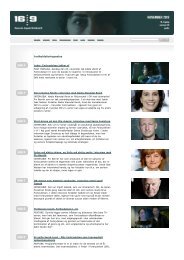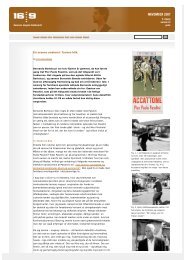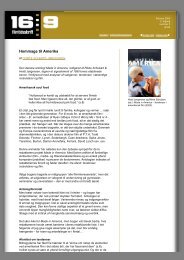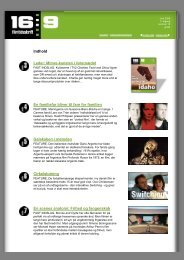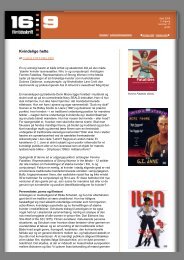Create successful ePaper yourself
Turn your PDF publications into a flip-book with our unique Google optimized e-Paper software.
them with freedom and refuses to be governed by any simpleunderstanding that would dictate a strict system of equivalences. Sothe focus-blur that most often marks a move between past and present,and is most often bridged by a resumption of narration, can functionalso to make the ellipse that covers the birth of young Stefan withoutany return to the moment of reading.The challenge to the film is to arrive at order and comprehensibilitywithout falling into an impoverishing neatness. It is vital to its effect thatit should not solicit a literal reading of its devices, and that it shouldarrive at a persuasive form while blocking any coherent understandingof the relations between the words of the letter, the speaking voice andthe movie's images. No rational time-scale or system of subjectivitiesholds the key elements in harmony. Lisa cannot be reading the lettersince Lisa is dead. Stefan cannot be imagining the reading in Lisa'svoice since he does not know who sent it. The images we see are notexplicable as projections of the letter's content since we are so oftenshown events and transactions of which Lisa was unaware. Of course aloose convention is in play, one that allows us to understand the voiceoveras speaking (<strong>som</strong>e of) the words of the letter, and the images asconstituting an internal movie that offers an independent version of t<strong>hele</strong>tter's events. But Ophuls and Koch push very hard against the limitsof this convention and expose - where others would seek to naturalise -its artifice.A relevant contrast is with Brief Encounter (David Lean/Noël Coward,1945) and it would be interesting to know how consciously it was amodel for Ophuls and Koch. One could imagine Ophuls, a directorgenerous to the work of fellow artists, as an admirer of the British filmand one impressed - as so many were - by its restraint and its refusal ofglamour and gloss. Equally it would be unsurprising to find that hisartistic conscience was affronted by the Lean film's mixture ofschematism and inconsistency in, for instance, its opportunistic use ofRachmaninov's music. In Brief Encounter the flashback story isnarrated by a voice representing the unspoken thoughts of the CeliaJohnson character (Laura). The film stays carefully within theconstraints of its narrative premise until near its end but then makesone very large deviation (in the scene that Billy Wilder claims as theinspiration for The Apartment). Laura scurries away down the fireescape when an assignation with her passionate friend Alec (TrevorHoward) is interrupted by the surprise return of the apartment's owner.We are then given a scene between the two men - the dialogue thatfamously climaxes in "No, Alec - not angry - just disappointed". Thescene defies the logic of the flashbacks as Laura's memories (whichmay be her fantasies). When it is finished we rejoin Laura; her voiceoverresumes to tell us that she spent the next three hours wanderingalone to overcome her humiliation and shame [*2]. Nothing has givenher access to the men's exchange, and nothing legitimises their sceneas, say, a product of Laura's imagination.Brief Encounter's mapping of viewpoint is insistently tidy, withconcealments at the start that have no other value than to prepare theground for clarifications at the end. The governing contrivance jarsagainst the film's unwillingness or inability to sustain its narrativepremise. Neatness without formal rigour reduces to fussiness. Whetheror not in reaction to Brief Encounter Ophuls' strategy is just the reverse.Where Lean's Laura is silent about the men's conversation, and the filmis seemingly embarrassed by the break in its narrative logic, Letter froman Unknown Woman frequently and systematically displays themismatch between conflicting narrative assumptions, most particularlyby stressing Lisa's absence from, or obliviousness to, scenes andincidents pictured in the flashbacks.Much comment has for good reason centred on those elements thatundercut her enraptured view of the romance. Representative here areStefan's negotiations with the old couple who run the scenic train in thePrater. Both times attention is drawn to Stefan's leaving Lisa in thecompartment and so leaving Lisa in ignorance of his transaction. Thereis in each case a cut to the exterior of the closed compartment, a cutemphatic in its refusal of the fluid continuity that was at Ophuls'



